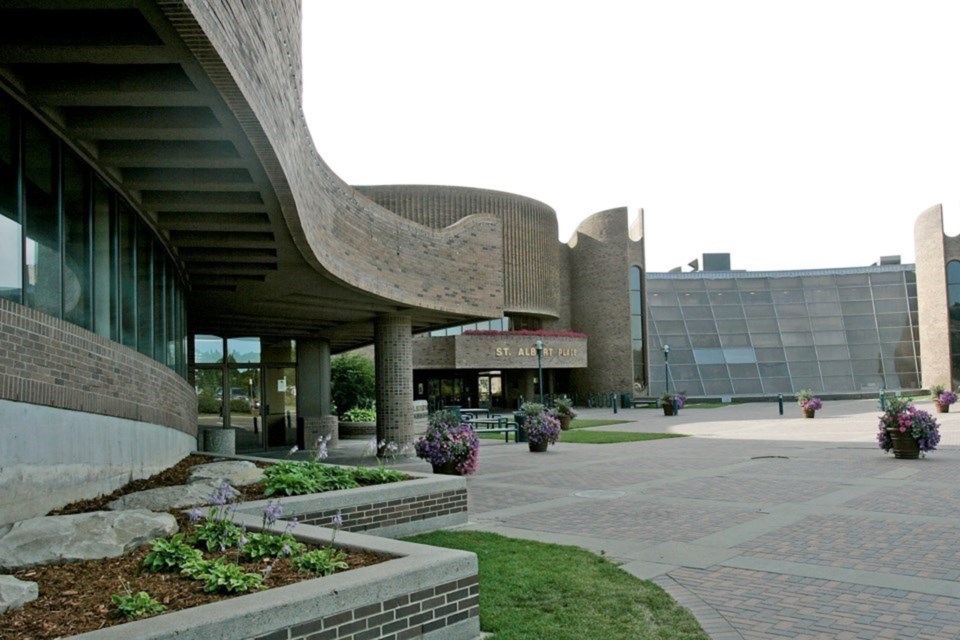Council approved a handful of last-minute adjustments to the city's 2024 budget on Tuesday, which reduced this year's property tax increase to 5.3 per cent from the 5.5 per cent increase calculated when council passed the budget in December.
The reduction means property owners will now see their taxes increase by $42 for every $100,000 of property value, rather than the $45.20 increase that would have happened under a 5.5 per cent tax increase.
The budget adjustments approved by council include increases to the revenue forecasts from public transit and the Servus Place Recreation Centre this year, slightly reducing the amount of property taxes the city needs to collect.
A new report to council written by city financial manager Suzanne Findlay said St. Albert Transit finished 2023 with a revenue surplus as a result of strong ridership numbers, a trend that has continued through the first few months of 2024. As a result, administration proposed increasing the transit revenue expectation by $170,000.
For Servus Place, administration proposed a revenue forecast increase of $50,000, also as a result of positive facility usage trends so far this year.
Another adjustment council approved is the use of $117,000 in assessment growth to reduce the amount of property taxes the city needs to collect this year.
Assessment growth is additional tax revenue collected by the city from newly built or developed properties.
In all, the city is expecting to generate $468,000 in assessment growth in 2024. A council-set policy dictates that 25 per cent of each year's assessment growth is used to reduce the tax base, 55 per cent is transferred to the city's stabilization reserve, and 20 per cent is put toward life cycle costs. Therefore, $117,000 of the assessment growth will be used to reduce property taxes this year, $257,400 will be transferred to the stabilization reserve, and $93,600 will be used for life cycle costs.
Offsetting these adjustments, Findlay's report states, is the loss of $119,000 in provincial grant funding the city was expecting to receive before administration learned in March the Provincial Highway Maintenance grant no longer exists.
“This grant provides funds to municipalities to reflect the province's responsibility in sharing the cost of operating and maintaining provincial highway routes through cities,” Findlay wrote.
Findlay's report said the grant used to be included in the Municipal Sustainability Initiative (MSI), which as of this year was replaced by the Local Government Fiscal Framework (LGFF). The LGFF, like the MSI before it, is the main source of direct funding that Alberta municipalities receive annually from the province.
“While the MSI program has been replaced with the [LGFF] in 2024, there was no communication to indicate the Provincial Highway Maintenance grant would be discontinued.”
Heather Jenkins, the press secretary for Alberta Municipal Affairs, did not respond to the Gazette's inquiry prior to publication.
Coun. Ken MacKay said in an interview the cancelled grant program is another example of the province downloading costs onto municipalities.
“A lot of people don't realize that St. Albert Trail is actually a designated highway, and the province should pick up a little bit more in the long-term involving the maintenance, and they have a small amount, with that $119,000,” he said. “Obviously, it's a main thoroughfare through our community so it has to be maintained, but now it's no longer with any assistance from the [province], or recognition that it's a provincial highway and provincial responsibility.”
In response to a question from Coun. Natalie Joly during the April 16 meeting, council heard from administration there has been no communication from the provincial government about any intention to reinstate the grant in some form in the future.
Besides the loss of grant funding, MacKay and Coun. Mike Killick said the transit and Servus Place budget adjustments were welcome news.
“Anything positive like that is good,” Killick said. “It's good news on utilization of the Arc Card, and more people going into the university area [of Edmonton] and downtown businesses rebounding.”
For Coun. Sheena Hughes, who put forward an unsuccessful motion during budget deliberations in November to hire a consultant to analyze the business model of Servus Place, the increased facility revenue expectation is good, but not enough.
“The reality is that we are still subsidizing this for well over $1.5 million a year,” she said. “I don't care what other municipalities have as a standard, we need to have a standard of expecting to not have subsidies from taxpayers [to run the facility].”
“We need to be able to figure out how we can capitalize on it differently.”




